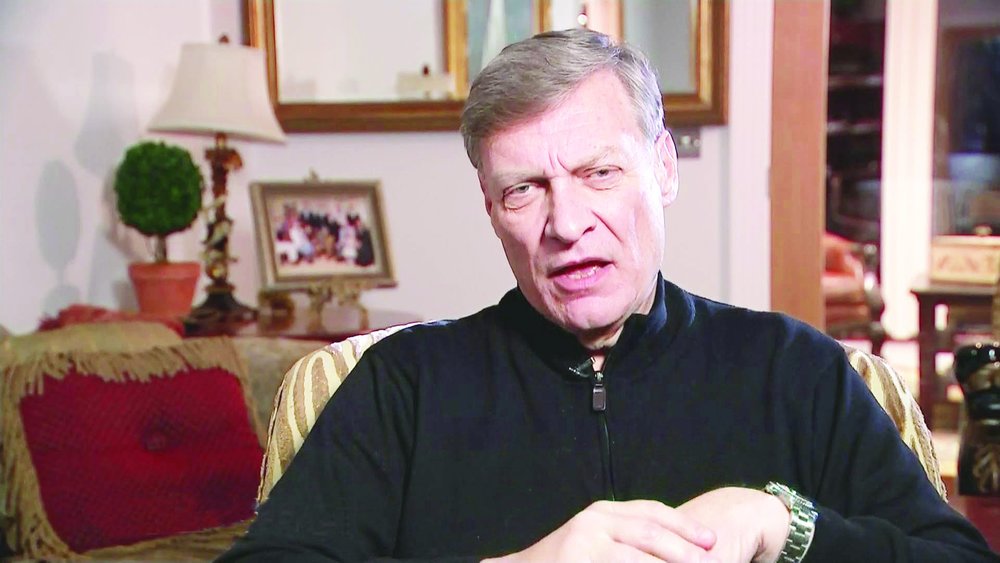European leaders warily await Donald Trump's choice of ambassador

Ted Malloch, the man currently running an expensive media campaign to persuade Donald Trump to nominate him as the U.S. ambassador to the European Union, knows that if he succeeds, it will be taken as a signal that Trump is willing to use his presidency to destroy the EU.
Leaders of the bloc are in no doubt, looking at Malloch’s record, that this would be the only way to interpret such an appointment. Sigmar Gabriel, the new German foreign minister, travelled to Washington this week to question the state department in private about whether a turning point in 70 years of transatlantic relations had indeed arrived.
There remains a hope that much of what emerges from the Trump Twitter feed is bluster, not policy, and that Malloch is not as close to nomination as his relentless self-publicity suggests. The businessman may have been close to the president in the campaign, and has a soul brother in the former UKIP leader Nigel Farage, but his diplomatic credentials – a posting in Geneva – are hardly stellar.
The appointment of Ted Malloch would leave little doubt that the U.S. president is willing to destroy the EuropeanNevertheless, a senior EU official said, leaders were formally studying the process by which an ambassador can be rejected.
In an attempt to keep his name in the frame, Malloch half-apologized on Friday for likening the EU to the Soviet Union, and for claiming he would see it as his role to tame it in the same way as he apparently tamed the USSR. The claim seems to come from his time as a diplomat at the UN in Geneva during the late 1980s and a brief stint in the state department. While apologizing, however, he could not stop himself from condemning the EU as an outdated concept.
Malloch has a predilection for apocalyptic interpretations of Trumpisms, saying, for instance, that “the post-Berlin Wall globalization consensus is over” and “read the obituary – Davos-man is dead” and “the only supranational organization in which the president believes is God”.
In European eyes, figures like Malloch and Steve Bannon, Trump’s chief strategist, do not really want to end the U.S. leadership role in Europe. They want, in the view of the European council president, Donald Tusk, to destroy the EU.
This is not a policy of non-interference. The policy is to help oversee the break-up of the EU, using the bully pulpit of the presidency and the Breitbart website to do all they can to cheer on the populist forces across Europe. Victories for nationalist parties in the Netherlands, France, Germany and Italy this year would ensure the EU’s implosion, and as such are to be encouraged.
It is hard to discern how much of this thinking has been exported to the U.S. by Farage and Thatcherite thinktanks, or how much is an extension of the anti-elitist, nationalist strain promoted by Trump.
Either way, the chief target is Germany, which is also, unsurprisingly, the single greatest challenge to U.S. economic power in Europe.
In his campaign, Trump used the chancellor’s name to smear Hillary Clinton in the eyes of his far-right supporters. He said Clinton wanted to be “America’s Angela Merkel”, a reference to the German leader’s liberal refugee policy. He accused her of dominating Europe and then threatened to impose tariffs on German cars imported from Mexico, raising deep concern in Germany’s automobile industry, a key pillar of Europe’s largest economy.
Trump’s top trade adviser, Peter Navarro, accused Berlin of manipulating the European Central Bank and using a “grossly undervalued” euro to exploit the U.S. and EU member states.
The broadsides are not all good news for Theresa May. There is a danger that they will galvanize European leaders into an unprecedented unity against Trump and his allies, so making the Brexit talks more difficult, and rendering the UK’s role as a bridge to the U.S. less relevant.
(Source: The Guardian)
Leave a Comment